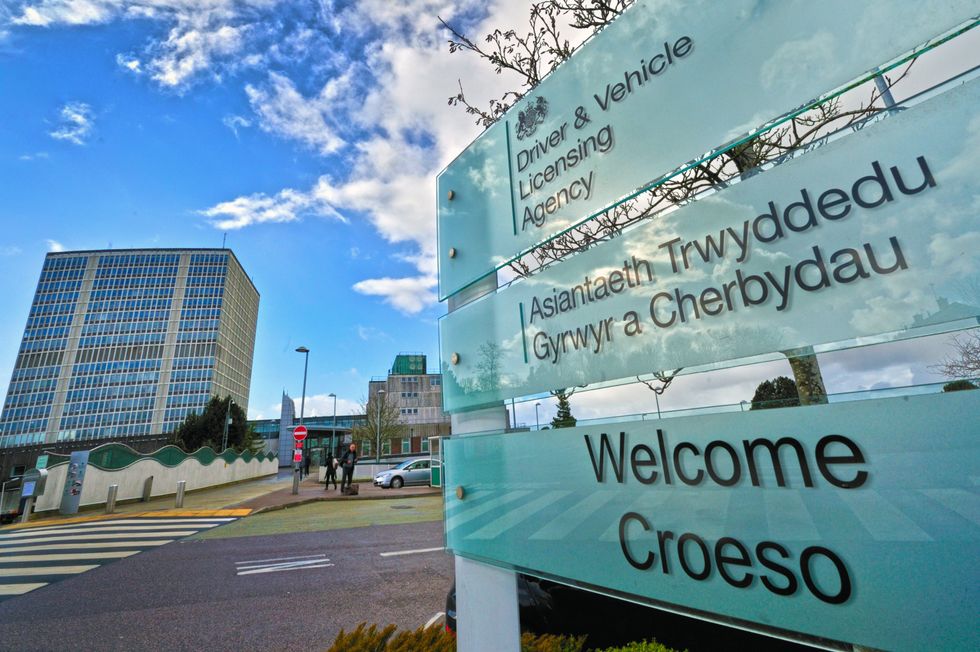Car drivers who suffer from some medical cases risk prosecution and insurance issues to break the dvla rules
UK drivers have been warned that they might face fines of up to 1,000 pounds for their failure to inform DVLA of some medical cases.
Car drivers should report conditions such as OSAS, regardless of whether they have received an official diagnosis, DVLA warns.
The legal requirement applies to any person who has moderate or severely confirmed OSAS, as well as those who suffer from moderate or confirmed cases that cause excessive drowsiness.
This comes after reports found that fatigue represents a major problem on UK roads, which contributes to up to 20 percent of road accidents and up to a quarter of deadly and serious accidents.
Do you have a story you want to share? Connect via emailMotoring@gbnews.uk
Drivers can be fined 1000 pounds for their failure to meet the rules of the DVLA medical condition
Gigantic
Now, experts have warned that driving while excessive fatigue can be dangerous Driving driving. OSAS is a condition in which a person’s breathing stops again and again during sleep, which leads to excessive fatigue during the day, bad weakness, and slow reaction times.
These symptoms can weaken the performance of driving significantly, creating dangerous conditions on the road. R.I was able to stop breathing while breathing at that time 10 million people In the UK sleep experience AncanoWith four million suffering from severe symptoms.
Despite its spread, NHS warned of sleep Ancano It can be difficult to discover. Common signs include excessive snoring and fatigue during long periods, but many people are still not diagnosed because symptoms occur mainly during sleep.
“We know that driving during fatigue is very dangerous,” said Graham Conway, Managing Director of Select Car League. But the problem of sleep Ancano It is that although it is a common medical condition that needs to notify DVLA, it may also be difficult to discover and diagnose largely because the symptoms occur when they are asleep.
he Warning that there is also the risk of prosecuting and heavier fines if the condition leads to a road traffic accident. Conway added that drivers should inform the insurance provider of their cars, because the failure to detect a medical condition can nullify their coverage.
If the GP is suspected of sleeping AncanoPatients are usually referred to the sleep clinic for diagnosis. This often involves wearing a device overnightly that monitors breathing and heart rate. NHS recommends this moderate sleep Ancano It can sometimes be treated with lifestyle changes, including weight loss and smoking.
The most severe cases of treatment may require the continuous positive airway machine CPAPHe explained. This device gently pumps the air into a mask wearing the mouth or nose during sleep.
“It is very important for drivers to talk to GP if they suffer from sleep -stopping symptoms. The condition is treatment, usually with a CPAP machine,” Konway added.
DVLA said he will evaluate whether it is safe for someone to continue driving, depending on his diagnosis and the extent of the status of the condition.
According to sleep -stopping confidence, drivers who suffer from the condition six It is more likely that you have a traffic accident on the road from those who do not have.
Konway note: “To be honest with DVLA is not only about to follow the rules; it is about protecting yourself and others on the road. Reporting medical conditions is clear and direct, and models can be filled over the Internet. It is a small step that can make a big difference in road safety.”
DVLA provided clear instructions on how drivers reported sleep conditions. Car drivers can report or suspected OSAS online through DVLA.
Latest developments:

DVLA can make high -end drivers and heat licenses for their failure to meet their requirements
Dvla
Car owners or motorcycles can complete the SL1 model, while bus drivers, trainers or truck must fill the SL1V model.
DVLA stated that car drivers “should not lead until they are freed from excessive drowsiness or until the symptoms become under control and follow any necessary treatment.”





